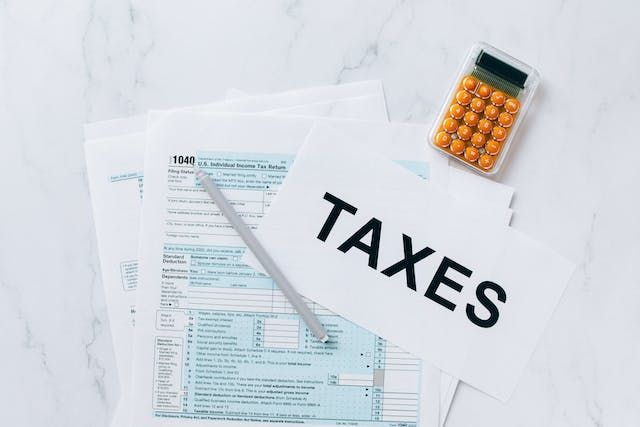9 Tax Tips Every Investor Must Know

Many investors find it quite challenging to navigate the complex world of taxes. However, understanding the taxation implications of your financial decisions is crucial to preserving your wealth and getting a higher return on these investments.
That’s why we’ll discuss some important tax tips you should know as an investor in the US. Make the most out of your investments by getting tax breaks legally.
Even seasoned investors sometimes require advanced strategies to lower their tax bills and potentially maximize their investment portfolios. So, here’s how you can stay tax-efficient in this economy.
1. Contribute to an IRA Steadily
Any list of tax tips for investors should always begin with this one, i.e., individual retirement accounts (IRAs). An IRA is every American’s favorite way to slash their taxes every calendar year. You can save money for the long term by using either a traditional IRA (using pre-tax income) or a Roth IRA (using after-tax income).
This way, you leverage tax-deferred growth or tax-free withdrawals to reduce your taxable income, maximizing your future investment.
2. Rectify Past Oversights Properly
Let’s discuss an important but relatively not well-known amnesty program established by the IRS for delinquent taxpayers. These SDOPs or Streamlined Domestic Offshore Procedures offer relief to U.S. investors who have accidentally under-reported their foreign investment accounts.
If they have non-willfully failed to meet their reporting obligations, they can avoid severe penalties by leveraging this simple amnesty program and become tax-compliant once again very straightforwardly.
Remember that SDOPs don’t completely absolve you of penalties; it’s a lifesaver that allows you to rectify past makes to come back in the IRS’ good books. So, talk to a competent tax attorney about it first. Do extensive research to determine if SDOPs can help keep your investments safe.
3. Consider Some Tax-Efficient Funds
Keen investors always seek ways to maximize their investment portfolio without increasing their tax bills. Why not invest in a tax-efficient fund for long-term capital appreciation but fewer taxable events? Some popular examples of these funds are mutual funds or ETFs (exchange-traded funds), successfully minimizing the tax impact on your investment returns.
So, you will retain most of your investment gains and grow your wealth more effectively over time. Ensure these index funds are the cornerstone of your investment portfolio, especially the universally cherished EFTs, as they offer lower costs and amazing tax efficiency.
4. Add To Your Retirement Account
As a business owner, you should leverage a self-employed retirement account to reduce your tax bill significantly. It also comes with two versions, traditional and Roth. You can set it up with an IRA to maximize your non-taxable income later. Get extra benefits as an up-and-coming investor.
Moreover, all your earnings within the Solo 401(k) will grow tax-deferred until withdrawal, reducing the taxation liability in the end.
5. Declare Your Cryptocurrency Losses
A little creativity can help you go a long way in reducing the taxation burden. What if you start writing off all those cryptocurrency losses? Many investors were bedazzled by the magic of cryptocurrency between 2021 and 2022.
However, even your crypto losses can lead to significant tax breaks; experts say you can deduct over $3,000 from your income if your losses exceed the gains. Just ask your tax attorney how to report crypto gains and losses properly first.
6. Exchanging Similar Properties
If you’re a real estate investor, use like-kind exchange tax rules to reduce your tax bill. Known as the 1031 exchange, it benefits property owners who sell a property and buy a similar one. In other words, if you swap one investment property for another one, the government calls it a tax-deferred transaction.
Also, take advantage of depreciation deductions. Residential rental properties depreciate over 27.5 years, reducing the taxable income for you. It’s a long-term strategy for dedicated investors.
7. Try Maxing out Your HSA
Don’t forget that HSA contributions are also tax-deductible. So, you can decrease your overall tax liability by contributing enough money to a health savings account. Tax attorneys will tell you that HSAs have a triple tax advantage; they offer pre-tax contributions, tax-deferred earnings, and tax-free withdrawals.
Just be mindful of HSA’s annual contribution limit – $3,850 for an individual and $7,750 for the whole family – and you’re on your way to enjoying significant tax breaks.
8. Be a Little Generous with Your Wealth
Make philanthropy a part of your investment goals, and you’ll see significant tax advantages. For instance, you can itemize cash donations or donate up to $100,000 from your IRA in a year. A qualified charitable distribution is a great excuse for major tax write-offs for investors. You can reduce your tax liability while also contributing to your reputation.
Just remember to procure evidence of these charitable donations by getting receipts. Also, maintain impeccable bookkeeping records to convince the IRA of your goodwill. No wonder one-third of U.S. taxpayers itemized these deductions in 2017 to reduce their tax bills.
9. TaxEefficient Asset Location
As an investor, your wealth is distributed across many tax-advantaged and tax-disadvantaged accounts. You can be smart about allocating funds to these accounts and strategically placing your money to lower the overall tax bill. Here’s how it works, in simple words: You put tax-efficient assets in taxable accounts while all the tax-inefficient funds go to tax-advantaged accounts.
Following this strategy, you would place tax-inefficient assets, like bonds, into tax-advantaged accounts. That’s how smart investors reduce their annual tax obligations, grow their investments faster, and watch their tax savings compound over time.
Wrapping Up
Understanding the taxation landscape is important for both experienced investors and newcomers to this industry. Stay one step ahead of the IRS by setting up tax-efficient funds. Divide all your assets very smartly among different accounts. Max out your HSA, and don’t forget to declare your losses from cryptocurrency investments.
Most importantly, however, rectify past oversights ASAP with Streamlined Domestic Offshore Procedures (SDOPs) as a much-appreciated lifeline and become tax compliant in the eyes of the IRS.





